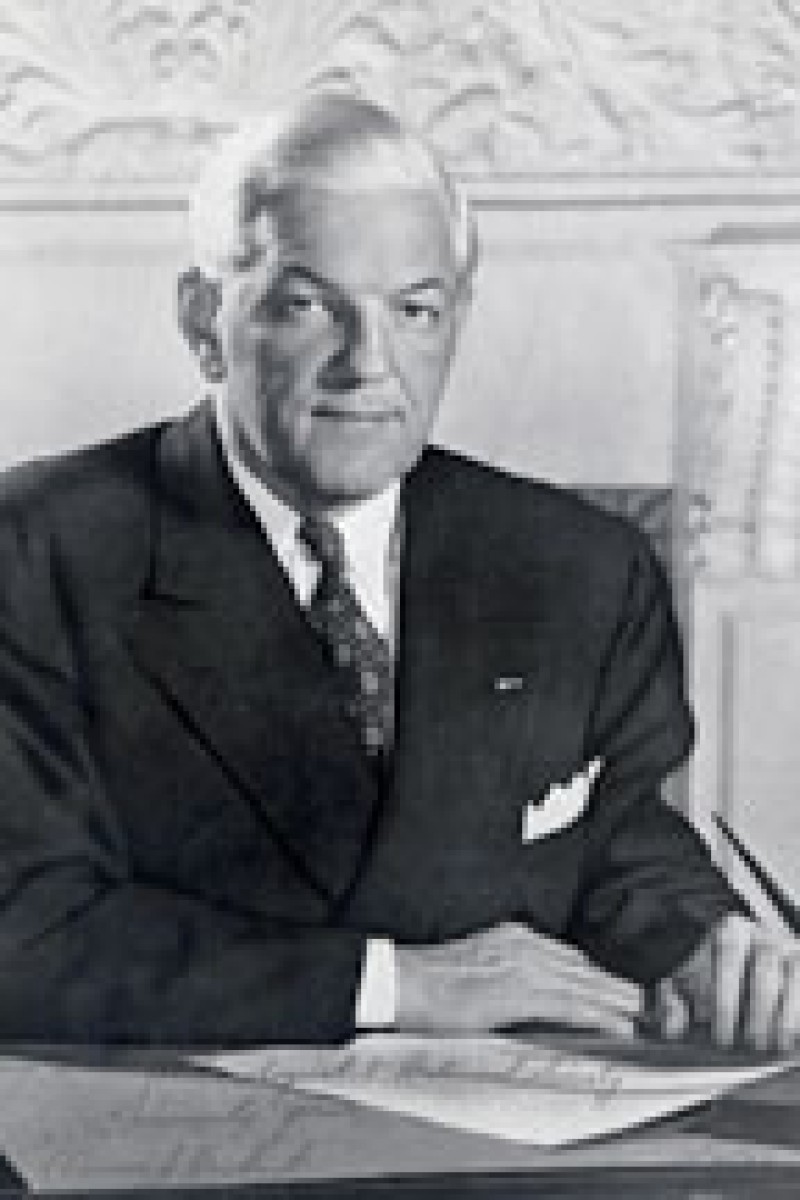Thomas John Herbert
Friends remembered Thomas John Herbert, highly decorated World War I fighter pilot and statewide officeholder, more as a family man, student of the law and lover of ice cream and corn on the cob.
Herbert was born in Cleveland on Oct. 28, 1894 to John T. and Jane A. Jones Herbert. He attended Cleveland’s Adelbert College of Western Reserve University, where he earned an A.B. degree in 1915 and enrolled in Western Reserve University’s law school after graduation.
Following the United States’ entry in World War I, Herbert interrupted his legal education to enlist in the officers training school of the aviation section of the Enlisted Reserve Corps on May 15, 1917 at Fort Benjamin Harrison in Indianapolis. He was honorably discharged on May 15, 1920. Lt. Herbert’s military action was cited for “extraordinary heroism,” and he was awarded the British Distinguished Flying Cross and U.S. Distinguished Service Citation of a Purple Heart.
Herbert, while on crutches, resumed his legal studies at Western Reserve University. He graduated with a L.L.B. degree in 1919 and also passed the Ohio bar in December. Herbert was named assistant law director for the City of Cleveland in 1921 and held that post until 1922, when he was appointed an assistant prosecutor in the Cuyahoga County prosecutor’s office. He resigned from the prosecutor’s office in 1923 to go into private practice. In 1929, Herbert and his family moved to Columbus when he accepted a position as assistant attorney general for the Public Utilities Commission of Ohio.
Ohio Attorney General John W. Bricker named Herbert special counsel in 1933. He held the post for four years. In 1936, Herbert attempted to succeed Bricker, but was defeated in the November election by Democrat Herbert S. Duffy. Herbert turned the tables on Duffy two years later by defeating him in the November 1938 election. Herbert was re-elected attorney general in 1940 and 1942.
Herbert sought the Republican nomination for governor in May 1944, but was defeated in the Republican primary election by Cincinnatian James Garfield Stewart. In October 1945, Herbert surprised many by announcing his intention to run for governor, 13 months before the 1946 general election. Also surprising was that the announcement came from his hospital bed at the Ohio State University Hospital, where he was recovering from surgery to his leg that was injured in World War I. Herbert rode a Republican landslide to victory in November and handed Gov. Frank J. Lausche his only defeat in six gubernatorial elections.
Following his defeat by Lausche in November 1948, Gov. Herbert returned to private practice in Columbus. In May 1953, President Dwight Eisenhower appointed him to the Subversive Activities Control Board in Washington, D.C. Shortly after his appointment, Herbert was named the board’s chairman and served until his resignation on Jan. 1, 1957.
In November 1956, by an overwhelming majority, Ohio voters chose Herbert over Evan P. Ford for a six-year term on the Supreme Court of Ohio. Herbert, after suffering a stroke on March 21, 1961 while the Court was in session, chose not to run for re-election and retired to private life in December 1962.
Justice Herbert’s years of service as attorney general and governor were put to use in his first year on the Court’s bench when he was asked to write the majority opinion in the 1957 case of Katz v. Board of Liquor Control. His opinion found for the appellees, Sanford Katz and Reuben Arnovitz, and affirmed the decision of the Franklin County Court of Common Pleas that prevented the Department of Liquor Control from revoking Katz’s and Arnovitz’s liquor permits. Justice Herbert’s opinion also affirmed the appeals court decision that statute denied the Department of Liquor Control the ability to appeal a decision of a trial court based on questions of fact. In doing so, Justice Herbert outlined steps to be taken to research the history of sections of the Revised Code, including reading all printed versions of bills and texts of amendments. In his written opinion, he also cautioned that the Court could not guess the intent of the legislature, but could ascertain the intent of the language that the legislature chose to adopt.
Herbert married Jeannette Judson of Cleveland on April 30, 1919 and the couple had three children. Jeanette Herbert died on Dec. 30, 1945. On Jan. 3, 1948, midway through his term as governor, Herbert married Mildred Helen Stevenson of Indianapolis. They had one daughter. Mildred Herbert died on Dec. 1, 1962. After years of extended illness, Herbert died Oct. 26, 1974.

b. Oct. 28, 1894
d. Oct. 26, 1974
116th Justice of the Supreme Court of Ohio
TERM
Jan 1, 1957
to Dec 1, 1962
